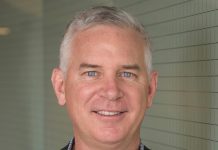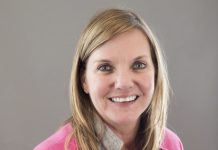Domus Retreat and David Livingston have been assisting patients who are recovering from substance abuse and mental illness for close to 20 years. Let’s hear from David about how we can promote our mental health and wellbeing as well as how we can de-stigmatize mental illness in our society.
At Domus Retreat, David Livingston has shown his competence at working with individuals from all sorts of backgrounds. As a psychotherapist, he exhibits his “ability to motivate, structure and strategize individuals and couples to achieve defined goals.” He believes that mental health and substance have an extensive relationship, and that very few people receive the “care, understanding, and treatment” they need to live a life away from substance abuse. Domus Retreat provides those three things because it sees and treats patients as individuals with real and unique needs.
David Livingston also believes that persons living with substance abuse need help in understanding why they are “struggling with chemical dependency,” and realizing which behaviors they need to adopt to begin moving them toward the life they want. Since substance abuse patients often feel vulnerable, David helps them by being empathetic and insightful in interacting with them. He treats them with respect, and he understands that different persons will need different treatments.
As a professional, David Livingston has worked with Clare Waismann since 1999, who founded the Domus Retreat in 2005. He holds certifications in psychoanalytic psychotherapy from the Los Angeles Institute and Society for Psychoanalytic Studies. He has been a guest lecturer at the University of Southern California regarding the treatment of chemical dependency, and he was an adjust professor at Yosan University Los Angeles. He is also a member of The California Association of Marriage and Family Therapists.
Check out more interviews with mental health experts here.
Jerome Knyszewski: Can you tell our readers about how you are helping to de-stigmatize the focus on mental wellness?
David Livingston: The most helpful thing I can do to help de-stigmatize mental wellness is bring understanding to whatever the problem is. The understanding includes the reality that problems like anxiety, depression, and substance dependency can be helped.
Because we have the potential to grow out of our symptoms, we can rediscover ourselves. The symptom is the limitation; the cure is the expanded, more capable, and resilient self. Most all mental health problems that are not biologically caused can be improved or resolved by the right understanding followed by an active process of growth. This is not hopefulness; this is a treatment and how we get better.
The symptom is the limitation; the cure is the expanded, more capable, and resilient self. This is not hopefulness; this is a treatment and how we get better.
Jerome Knyszewski: Was there a story behind why you decided to launch this initiative?
David Livingston: There is an extensive relationship between mental health and substance abuse. I joined forces with the Waismann Method® team and Domus Retreat because I felt that few people get the kind of care, treatment and understanding they need to address unwanted substance use. Once someone is detoxed from a substance so that they are no longer burdened by a physical dependence, they need to work with an experienced therapist to help them understand the factors causing the compulsive behavior or other causes of the dependence. This approach and our customized treatment plans set our team and recovery center apart.
We focus on each person’s unique needs and his or her underlying causes of using opioids or alcohol. We don’t rely on one-size-fits-all approaches. We also prioritize time for the person to work on their recovery and growth without being distracted by busywork like chores or group activities. Private, one-on-one therapy at our recovery center is designed to help patients feel more comfortable and secure to facilitate real growth and improvement. Our focus on the individual’s personal adjustment after detox and treating their unique symptoms and causes in an inpatient setting is dramatically different from many types of rehabs and other treatment programs.
Once someone is detoxed from a substance so that they are no longer burdened by a physical dependence, they need to work with an experienced therapist to help them understand the factors causing the compulsive behavior or other causes of the dependence. David Livingston, of Domus retreat
Jerome Knyszewski: In your experience, what should a) individuals b) society, and c) the government do to better support people suffering from mental illness?
David Livingston: Individuals, society, and the government need to all create a narrative that makes mental illness normative. Meaning, we can bear the realization that part of the world will include individuals suffering from biologically, developmentally, and emotionally based illness — and that we are very often capable of significantly improving these illnesses. This is a narrative of acceptance, understanding, and action.
We have a culture that is still needing to better understand the necessity of healthy dependency. A lot of mental illness is related to confusion on what to identify with and what to value. As a culture, we have overvalued the external world and undervalued our internal lives. Often, mental illness is the cost of this confusion.
We have a culture that is still needing to better understand the necessity of healthy dependency.
Jerome Knyszewski: What are your favorite books, podcasts, or resources that inspire you to be a mental health champion?
David Livingston: I have been influenced by the writings of Robert Johnson, James Hollis, Joseph Campbell, Melanie Klein, Joseph Goldstein and too many others to list. I just finished the “The Righteous Mind” by Jonathan Haidt, which is excellent in understanding the polarization happening in America.
Jerome Knyszewski: This was very inspiring. Thank you so much for joining us!





